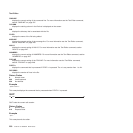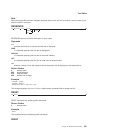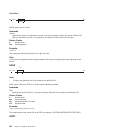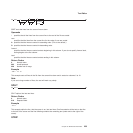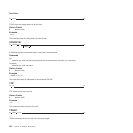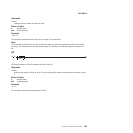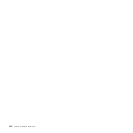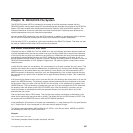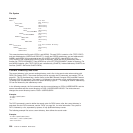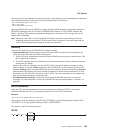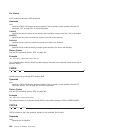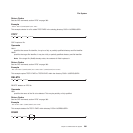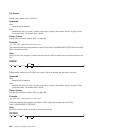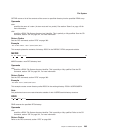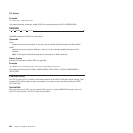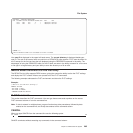
Example:
POOL1: File Pool
\ Root Directory
TEST1.EXEC File
USERS\ Subdirectory
USER1\ Subdirectory
TEST2.EXEC File
DOCS\ Subdirectory
TEST3.DOCUMENT File
USER2\ Subdirectory
LETTER.DOCUMENT File
PROJECT1\ Subdirectory
PROD1.EXEC File
DATA\ Subdirectory
PROD1.DATA File
WORK:\ File Pool and Root Directory
TEST1.DATA File
CHARTS\ Subdirectory
CHART1.DATA File
CHART2.DATA File
This example shows two file pools (POOL1 and WORK). File pool POOL1 contains a file (TEST1.EXEC)
and two subdirectories (USERS and PROJECT1). Inside the USERS subdirectory are two subdirectories
(USER1 and USER2) that correspond to user IDs (USER1 and USER2). User USER1 has a file
(TEST2.EXEC) and a subdirectory (DOCS) inside its directory. Inside the DOCS subdirectory there is
another file (TEST3.DOCUMENT). User USER2 has a file (LETTER.DOCUMENT) inside its directory. File
pool WORK contains a file (TEST1.DATA) and a subdirectory (CHARTS). Inside subdirectory CHARTS are
two files (CHART1.DATA and CHART2.DATA).
Current Directory and Path
The current directory is the current working directory, and is first in the search order when working with
REXX File System (RFS). The current directory can be set using the CD command, see section “CD” on
page 321. The CD command has a similar format to the IBM Personal Computer OS/2 and IBM Personal
Computer DOS CD commands. The syntax is CD followed by the partially or fully qualified directory name.
To change from a subdirectory back to the parent directory, type CD ... To change to another subdirectory,
CD can be followed by the subdirectory name.
In the following example, the first command sets the current directory to POOL1:\USERS\USER1 and the
second command sets the current directory to POOL1:\USERS\USER1\DOCS. The third command
changes the current directory back to POOL1:\USERS\USER1.
Example:
'CD POOL1:\USERS\USER1'
'CD DOCS'
'CD ..'
The PATH command is used to define the search order for REXX execs, after the current directory is
searched. See the PATH command, section “PATH” on page 361, for more information. The syntax is:
PATH, followed by a list, separated by spaces, of fully qualified directory names.
The following example first sets a current directory, then defines the search order.
Example:
'CD POOL1:\USERS\USER1\EXECS'
'PATH POOL1:\ POOL1:\USERS\USER1'
'EXEC TEST2.EXEC'
File System
258
CICS TS for VSE/ESA: REXX Guide



